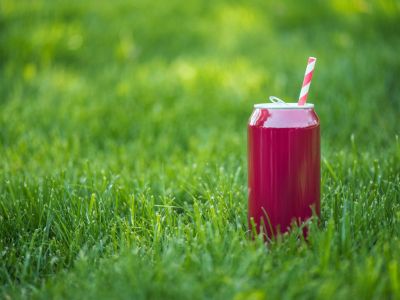Soda Pop as Fertilizer
Sugary soda pops are not the most ideal choices for use as fertilizer. Just like salt, sugar prevents plants from absorbing the water — not what we’re looking for. However, plain carbonated water introduced for a short period of time does encourage plant growth over the use of tap water. Club soda or carbonated water contain the macronutrients carbon, oxygen, hydrogen, phosphorous, potassium sulfur, and sodium that are essential for healthy plant growth. The absorption of these nutrients encourages more rapid growth in the plant. Therefore, pouring soda on plants, such as Classic Coca Cola, is inadvisable. Coke has a jaw dropping 3.38 grams of sugar per ounce, which would certainly kill the plant, as it would be unable to absorb water or nutrients. Other varieties of Coke such as Coke Zero, Coca Cola C2 and Coke Black have little to no sugar, but neither do they seem to have any added benefits over tap water, and they are significantly more costly than tap water. Sprite has almost as much sugar as Coca Cola and is, therefore, not useful as a soda pop fertilizer. It is, however, useful to lengthen the life of cut plants and flowers. I’ve heard 7-Up works just as well to increase the life for cut flowers in vases.
Effects of Soda on Plant Growth
Basically, the conclusion is that sugary sodas do not aid in a plant’s development, and in fact can retard the absorption of nutrients and water, resulting in death. Diet sodas may be helpful in stimulating plant growth since the lack of sugar will allow the water molecules to easily move to the roots. However, the effects of diet soda and plants are generally negligible over tap water and far more costly. Club soda does seem to have some benefits due to its high concentration of nutrients favored for plant growth. Also, its lack of sugar allows the plant to absorb them into its root system. While water is really the best choice for plants, carbonated club soda will certainly not harm your plants and may even result in larger, healthier, and more vividly green specimens.
